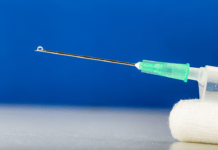It’s not uncommon for professional athletes to treat their body like a temple. From meticulous diet plans to vigorous exercise routines, elite athletes understand what it takes to keep their bodies in optimal condition so that they are more likely to achieve their goals.
Based on the above assumptions, it was surprising to learn that this was not necessarily the case for oral health, despite athletes’ best efforts. A study recently conducted by researchers at the University College of London, which was published by the British Dental Journal, took a look at the data.
Oral Health is Connected to Your Overall Health
Many people were taught at a young age to take good care of their teeth by brushing and cleaning interdentally every day. However, most people are still unaware of how much their oral health is connected to their body’s overall health. Good oral hygiene can prevent tooth decay, periodontal disease, and lowers the risk of many systemic diseases. For example, studies show there is an association between oral infections and serious infections and diseases such as diabetes and heart attacks.
A patient’s oral health can provide early signs and symptoms of certain systemic diseases that can impact the whole body instead of just one or two areas. Common markers found in saliva, dental tissue, and other oral conditions can reveal signs of HIV, AIDS, and certain types of cancer. Additional research also suggests that people with periodontal infections are at a greater risk of having a heart attack or stroke, low birth weight and preterm babies, certain cancers, rheumatoid arthritis, Alzheimer’s disease, among other systemic diseases.
About the University College of London Study
A cross-sectional study released this past month revealed that professional athletes had high rates of oral disease despite brushing their teeth more frequently than the rest of the population. The research was completed by scientists at the Eastman Dental Institute at the University College of London.
The scientists decided to analyze the dental records of over 350 Olympic and professional athletes. The athletes ranged from 18 to 39 years old, and over sixty percent of them were male. The elite athletes practiced a wide range of sports, including hockey, rugby, and swimming.
The team of researchers examined the overall health of the participants’ gingiva and teeth from June 2015 to September 2016. The athletes also periodically reported their oral hygiene habits in a questionnaire. The vast majority of the athletes (94%) said they brushed their teeth twice a day and 44% stated they cleaned interdentally.
Although the athletes told the researchers they were brushing and cleaning interdentally regularly, the results from the dental check-ups showed that almost half of them (or 49.1%) had developed some type of oral disease. Many of them had inflamed gingiva and confided their poor oral health was negatively affecting their performance in their field. The scientists were curious about the results since the participants had good homecare habits, followed healthy diets, visited the dentist regularly, and did not smoke cigarettes or other tobacco products.
Ultimately the researchers believed the tooth decay and erosion were caused by drinking sugar-filled energy bars and sports drinks. Around 87% of the athletes regularly consumed energy bars, and 59% of them said they liked to indulge in sports drinks.
In Conclusion
After reviewing the research findings, many of the athletes were alarmed at the state of their dental health and were open to changing their diet so that it could improve their dental health. Some of the suggestions include daily plaque removal, including cleaning interdentally, increasing their use of fluoride, and the addition of xylitol products.
Dental professionals need to be aware of the negative impact of sports drinks and energy bars on oral health so they can educate their patients. For more on this topic, click here.











